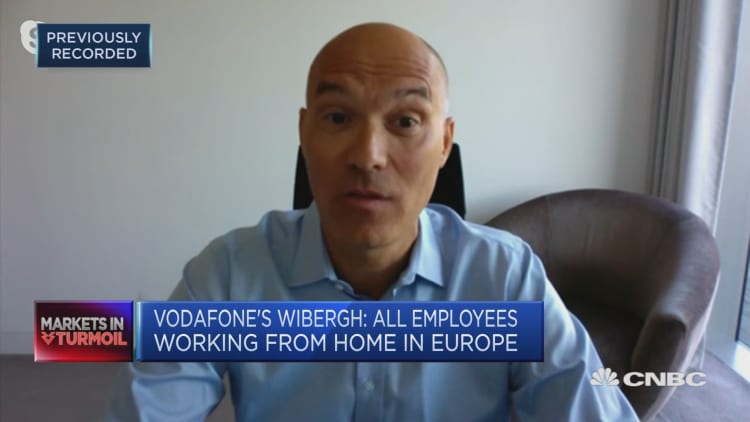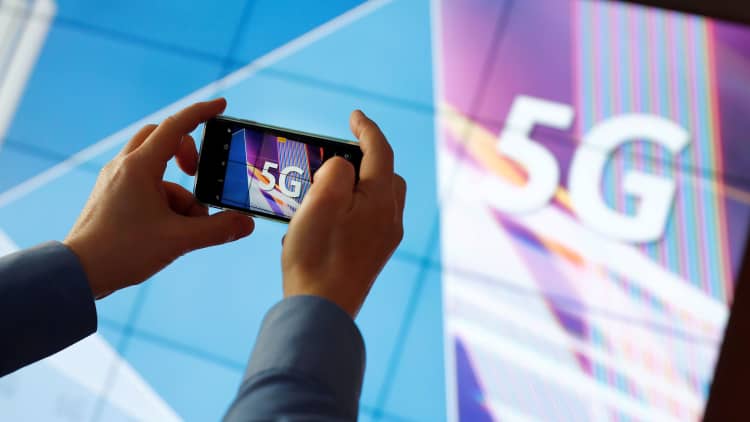
Conspiracy theories that link 5G mobile networks with the coronavirus pandemic are unfounded and are impacting on key health workers, a Vodafone executive said Tuesday.
"It's really the worst type of fake news," Johan Wibergh, Vodafone's chief technology officer, told CNBC's "Street Signs Europe," adding: "I'm really saddened about it."
Such baseless claims have inspired people to torch cell phone towers in Britain and the Netherlands, resulting in outcry from officials, carriers and scientists.
As of Monday, 24 of Vodafone's masts in the U.K. had been burned down by attackers, Wibergh said. One of the towers was supporting the National Health Service's new Nightingale hospital in Birmingham, England.
"It's really terrible," Wibergh said. "NHS workers want to talk to their family," he added, but can't because of "some ignorant people."
The bogus conspiracy theories have also led to attacks on telecoms engineers. A clip that went viral on social media earlier this month showed a woman harassing two workers, claiming 5G can kill people.
Celebrities in Britain such as TV presenter Eamonn Holmes and talent show judge Amanda Holden have been criticized for giving credence to such theories.
Holmes and broadcaster ITV were recently handed a warning from Ofcom, the U.K. media regulator, over his "ill-judged" comments. The "This Morning" host said the media shouldn't dismiss claims that 5G is spreading the virus.
Like previous generations of cellular networks, 5G relies on transmissions from radio raves, which are part of the electromagnetic spectrum. There have been fears that this radiation could impact on people's health.
However, the radio waves used for mobile networks are non-ionizing, meaning they don't have enough energy to remove electrons from atoms or molecules. Scientists agree that 5G is safe and cannot harm humans.
5G delays
There are already fears that Europe's 5G rollout could be delayed by the pandemic, which has heavily disrupted supply chains across the world.

With internet traffic surging due to coronavirus lockdowns, network operators are also having to continue maintenance on vital infrastructure.
"We have more or less been seeing six months forecasted demand materializing overnight," Wibergh said, adding the firm has seen 40% to 50% growth in fixed broadband traffic and a 15% increase in mobile data usage in Europe.
Asked whether he expected the pandemic and increased pressure on networks to limit the company's rollout of 5G, Wibergh said "our networks are operating flawlessly."
"We now are moving our focus to what's going to happen for the rest of the year," he said. "We will continue to expand increased capacity and increased coverage."
"We will also continue to deploy 5G. Let's see if we need to do some adjustments overall depending on the economic climate. But we are continuing with our investment program for now."


